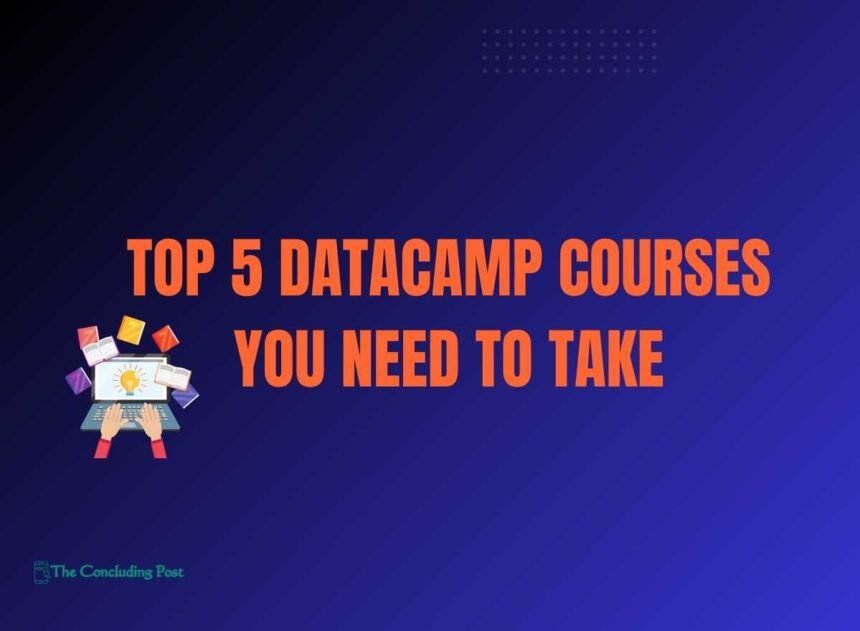Generative AI is the hottest trend right now. It’s evolving rapidly, attracting an ever-growing number of enthusiasts and professionals. Not long ago, Data Science was dubbed the sexiest job, but in 2023/2024, Generative AI has taken the lead.
From AI Prompt Engineers earning $300k/year to tech giants like Google and OpenAI battling to create the best chatbots, the time is ripe to dive into Generative AI. If you’re ready to ride this exciting wave, DataCamp has the perfect courses to get you started.
Why DataCamp?
DataCamp’s mission is to democratize data skills for everyone. They offer an extensive range of courses, podcasts, blogs, and more to ensure individuals and organizations are equipped with the skills they need to thrive in today’s data-driven world.
Ready to start a career in Generative AI? Here are the top 5 DataCamp courses to master Generative AI:
1. Understanding Artificial Intelligence
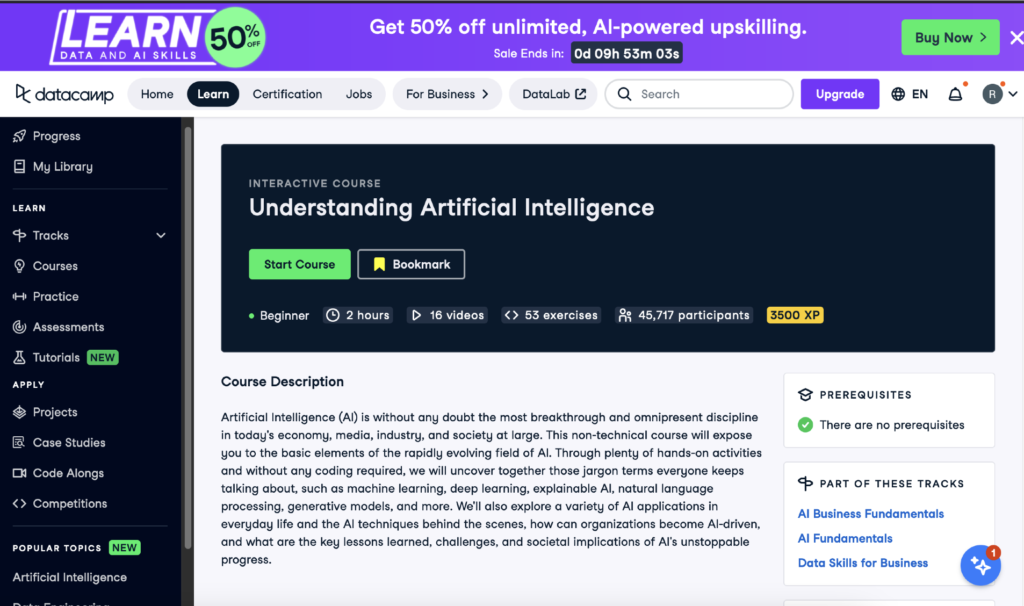
Link: Understanding AI
Level: Beginner
Time Needed: 2 Hours , 16 Videos and 53 exercises
Why Take This Course?
If you’re new to AI, this beginner-friendly course is your perfect entry point. It offers a comprehensive introduction to AI, covering essential topics like machine learning, deep learning, and generative models. Plus, no coding knowledge is required!
What You’ll Learn:
- Foundations of AI
- Rapid advancements in AI technology
- Hands-on exercises to solidify your understanding
- What AI can do and What AI cant do
Ideal For:
Anyone curious about AI and looking to build a strong foundational knowledge before diving into more specialized areas.
2. Generative AI Concepts
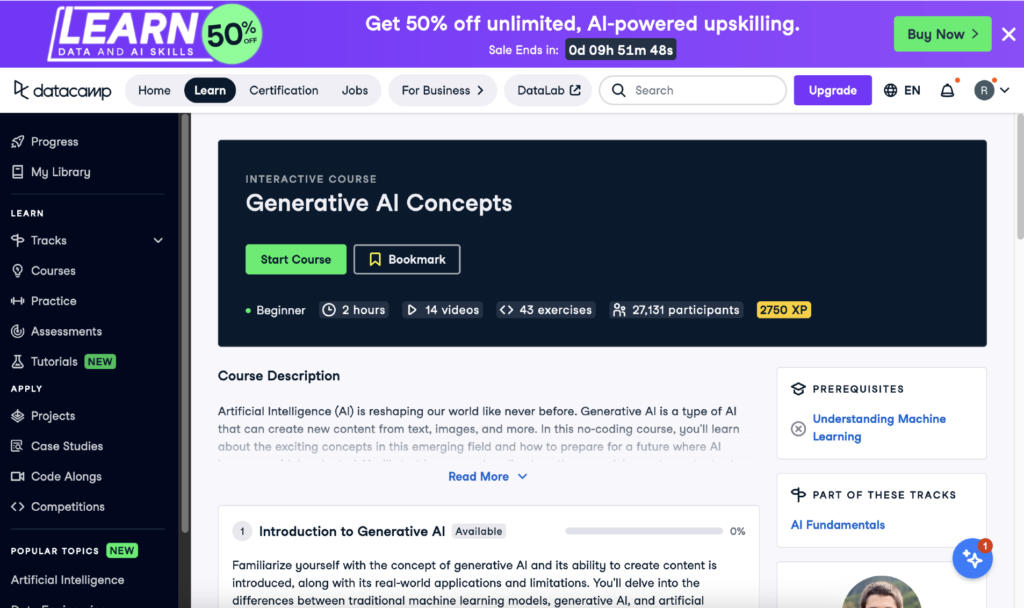
Link: Generative AI Concepts
Level: Beginner
Why Take This Course?
Now that you have a grasp of AI basics, it’s time to explore Generative AI. This course will guide you through the fascinating world of AI models that create new content and perform complex tasks.
What You’ll Learn:
- The workings of Generative AI
- Ethical considerations and practical applications
- Maximizing the use of Generative AI tools
Ideal For:
Beginners who want to understand how Generative AI is shaping our future and how to utilize these tools effectively.
3. Master LLM Concepts
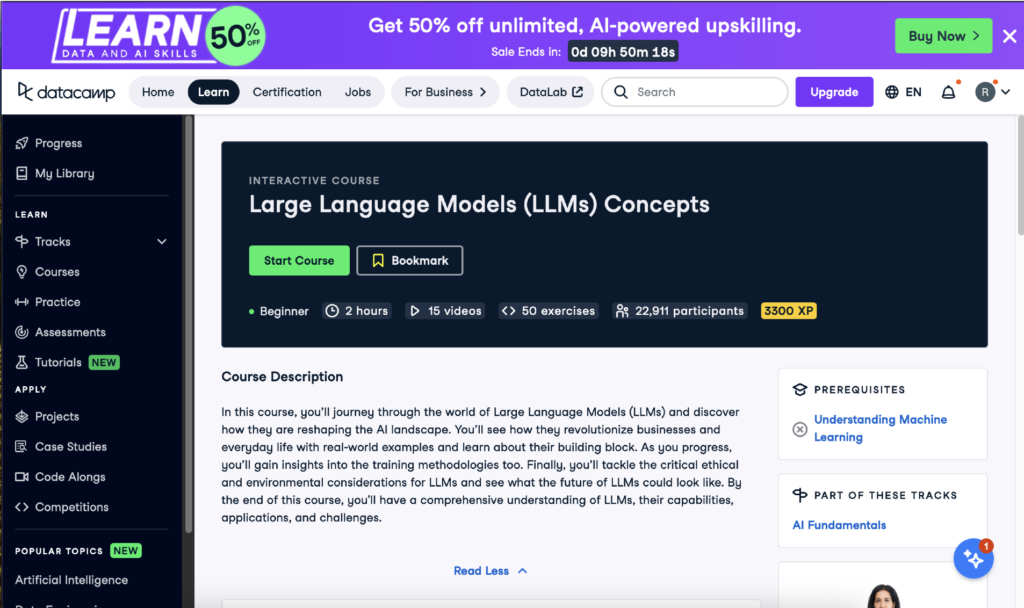
Link: Large Language Model Concepts
Level: Intermediate
Why Take This Course?
LLMs (Large Language Models) are revolutionizing the AI landscape. This intermediate course delves into the components fueling LLM growth, from deep learning to data availability.
What You’ll Learn:
- Foundations and building blocks of LLMs
- Natural Language Processing (NLP) and fine-tuning techniques
- Real-world applications and examples
Ideal For:
Intermediate learners keen to understand the mechanics of LLMs and their practical implications in business and personal use.
4. ChatGPT Prompt Engineering for Developers
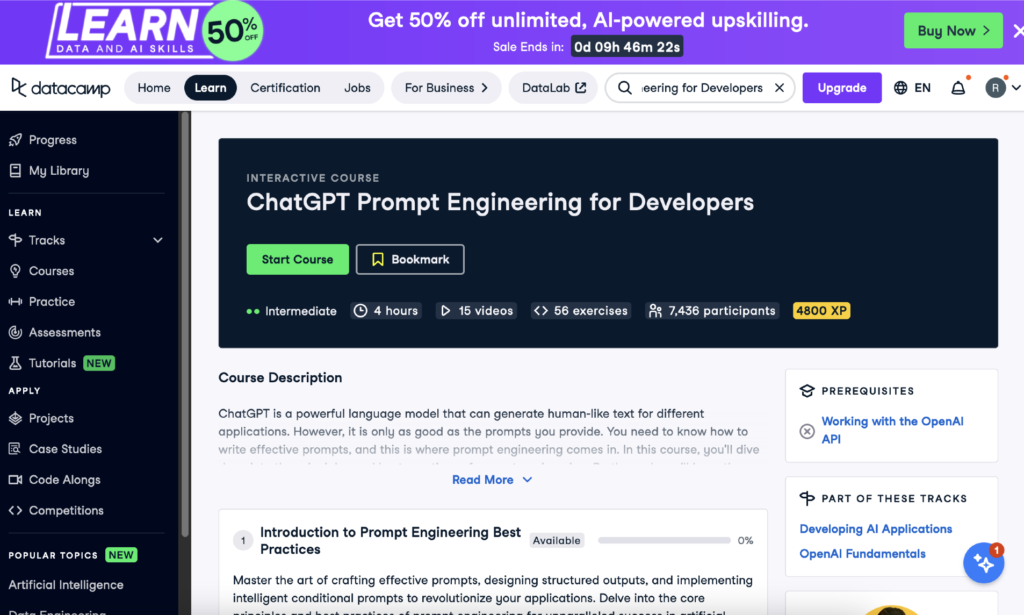
Link: ChatGPT Prompt Engineering for Developers
Level: Expert
Why Take This Course?
Prompt engineering is a crucial skill, especially for AI Prompt Engineers who can earn up to $300k/year. Learn how to craft effective prompts to get the best results from LLMs.
What You’ll Learn:
- Designing precise and unique prompts
- Techniques to generate accurate and contextually relevant outputs
- Advanced prompt engineering strategies
Ideal For:
Expert-level developers aiming to refine their skills in prompt engineering and maximize the potential of LLMs.
5. Working with OpenAI API
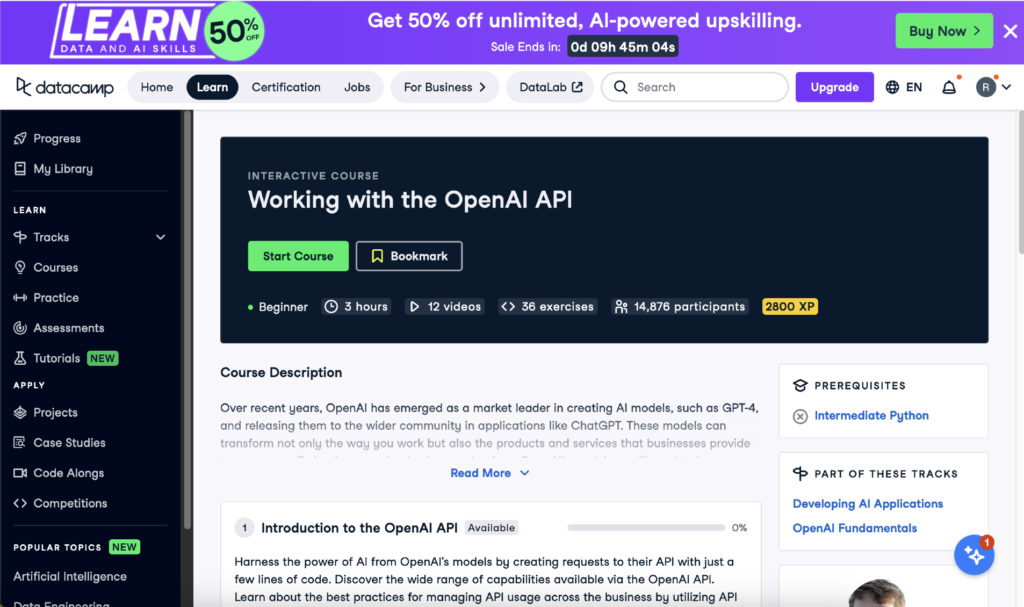
Link: Working with OpenAI API
Level: Intermediate/Expert
Why Take This Course?
OpenAI’s API is a powerful tool transforming workplace efficiency. This course will teach you how to harness its capabilities for various applications.
What You’ll Learn:
Using OpenAI’s API for text generation and sentiment analysis
Building custom chatbots
Integrating AI tools into your projects
Ideal For:
Intermediate to expert learners looking to leverage OpenAI’s API to develop AI-driven solutions tailored to specific needs.
Additional Tips for Success:
- Stay Updated: Follow AI industry news and blogs to keep up with the latest trends.
- Join Communities: Engage with AI communities on platforms like Reddit and LinkedIn.
- Hands-on Practice: Work on personal projects or contribute to open-source projects.
- Read Research Papers: Stay informed about cutting-edge research in AI.
- Experiment with AI Tools: Explore frameworks like TensorFlow, PyTorch, and Hugging Face.

